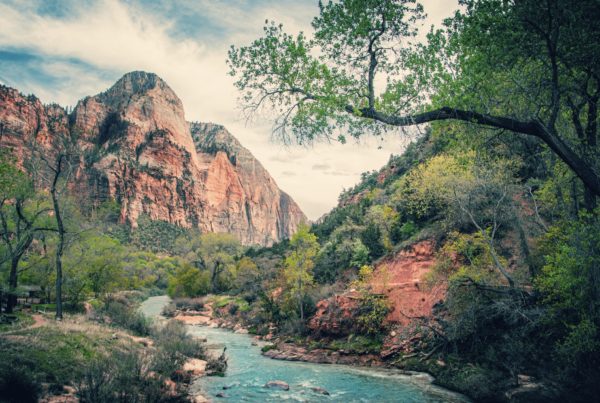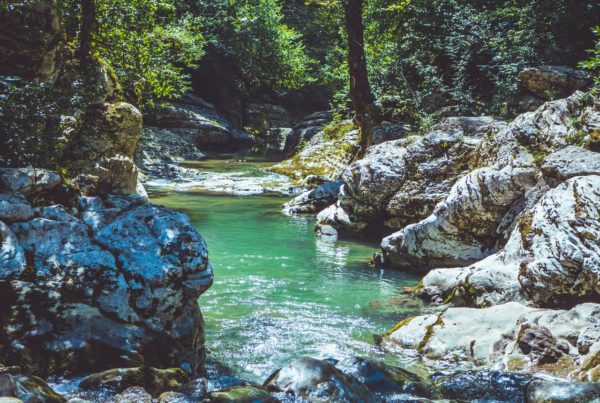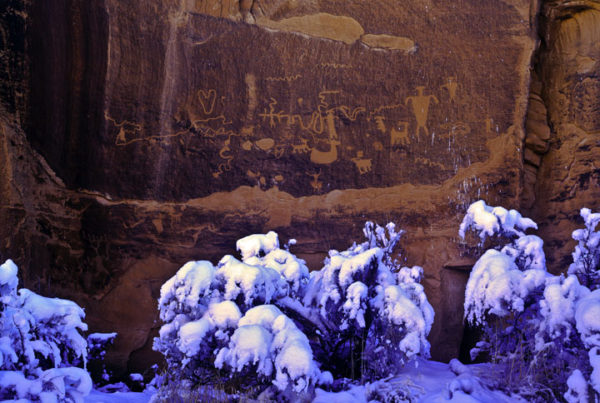Derrida talked about how words are a very loose net with which we attempt to capture all the depth and realness of experience. Though wonderful, they are horribly inefficient. I could never summon the right words to describe all that the desert and the river have meant to me.
Not that I haven’t tried—I’ve described the river as “my teacher, sometimes my enemy, sometimes an opportunity to be humbled.” I’ve had office views better than most people ever get to see in their whole lives. I’ve reflected on Isaiah’s concept of “peace like a river,” and found it profoundly real. I’ve had the sun bake lines of habitual clothing patterns into my skin and felt the river run right into my soul.
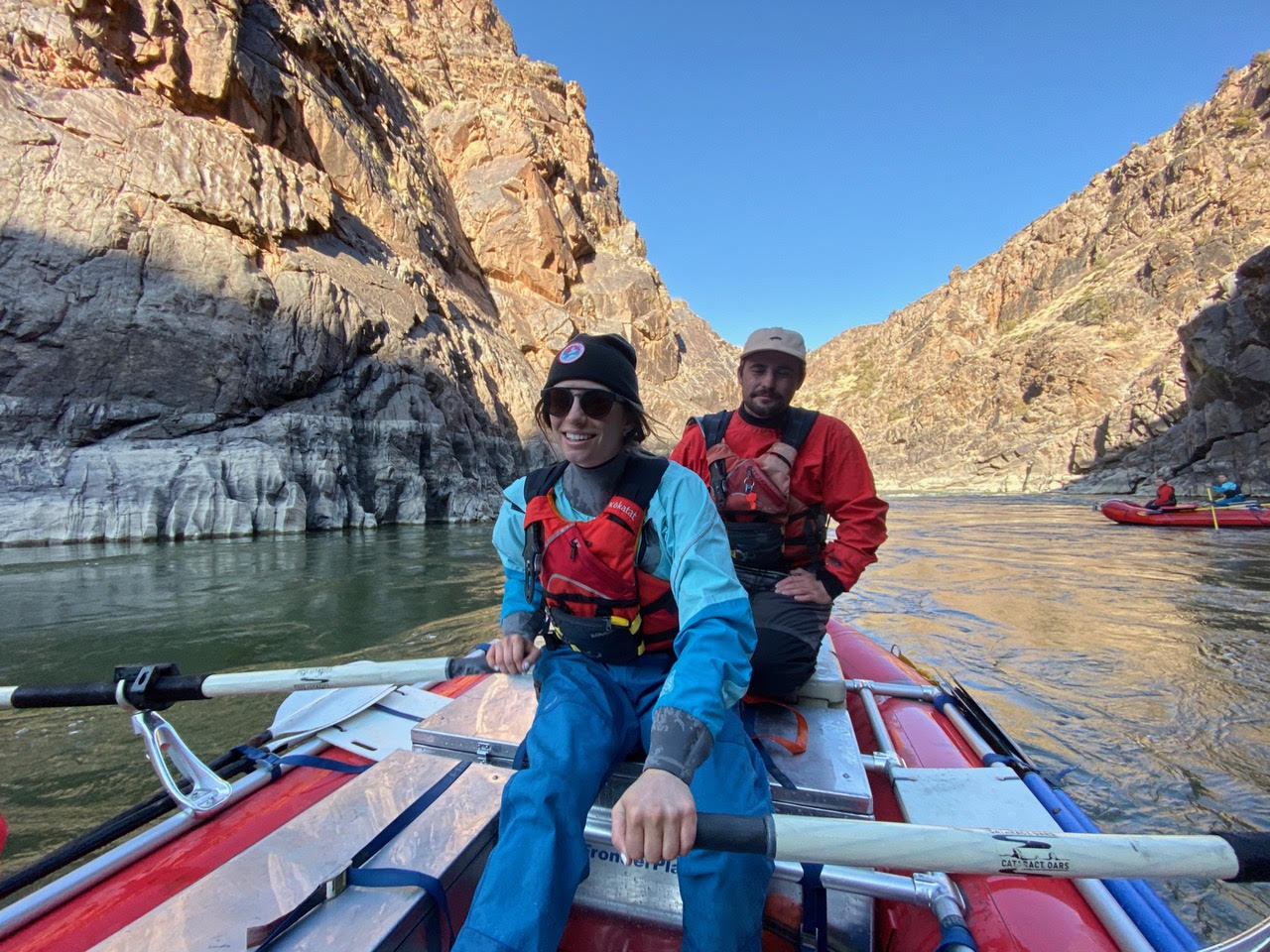
Desert and River as Divine Mirror
I kept a journal my second summer on the river that I wrote in every night. Each evening, as I sat on my sleeping pad that I normally perched on the door of the trailer, I would think of a river allegory that explained an aspect of God to me. I never ran out of things to write.
One time, I read something in Desert Solitaire that has forever changed the way I look at the desert, which is a kind of paradigm shift that is rare and precious—“At first it all seems like a geologic chaos, but there is a method at work here, a method of a fanatic order and perseverance: each groove in the rock leads to a natural channel of some kind, every channel to a ditch and gulch and ravine, each larger waterway to a canyon bottom or broad wash leading in turn to the Colorado River and the sea.”
It was one of my best allegories, I think. To consider my life, as it looked like absolute chaos sometimes, with no semblance of planning or reason. But to a God who perfectly understands past, present, and future welded together as a marvelous complexity, there is a great fanatic method. Every drop of water, every choice whether seemingly minute or hugely life-altering, shapes and develops us. In the end, all water runs into the river. Whether the river is our divine potential and the great grand becoming that takes place across our whole lives, or God’s work and glory, or a wonderful mix between the two, just the fact that it’s a river gives us an illustration of the eternity that each of those possibilities possesses. As I think of it now, it becomes even more poignant to consider how the last two years since that quote slam dunked its way into my brain have been more formative and chaotic looking than any other two years of my life. But the river has a way of being merciful just in time (even though sometimes it doesn’t).
It actually makes me chuckle to consider how ardently Abbey opposed our reading too much into the symbolism of the desert, because his book has become a familiar landmark of my own spirituality and connection with the Divine. I don’t know if he would hate that I’ve gone and done exactly what he said not to do, or that he would respect the part of me that refuses not to find great joy in the God of the Desert, the God of the River.
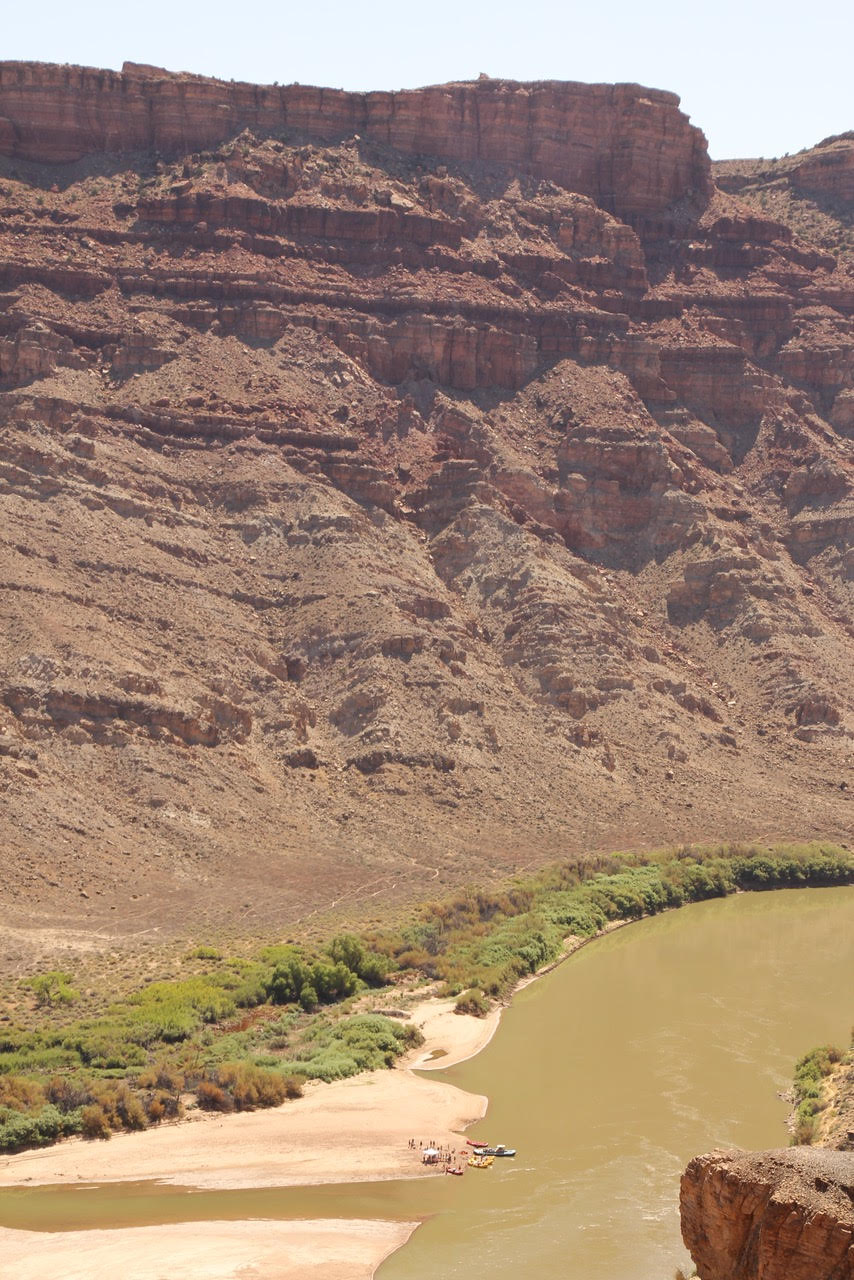
“This is the most beautiful place on earth,” Abbey begins. And so he is right. I remember last summer reading Down the River while sitting tucked in between the donut tube and the pontoon of our 40-foot S-rig. This specific memory was on Day 4 of the trip, which meant we’d already passed two days of flat water and a full day of some of the biggest rapids the United States has to offer. That day, I was reading Abbey’s mournful eulogy to Glen Canyon right over the very holy water that had buried it all. I remember the water being so still that it reflected back the canyon walls and stark blue sky with perfect symmetry, so still because the filling up of Lake Powell had slowed the current so much and filled the river out so wide that you could barely tell it was moving. The tragedy of mankind taking merely a decade to drown what God had taken millions of years to create was so heavy I had to put the book down for a while before I returned to it with a new bag of sunflower seeds and a new layer of sunscreen applied. Always put on more sunscreen, and never forget your sunflower seeds.
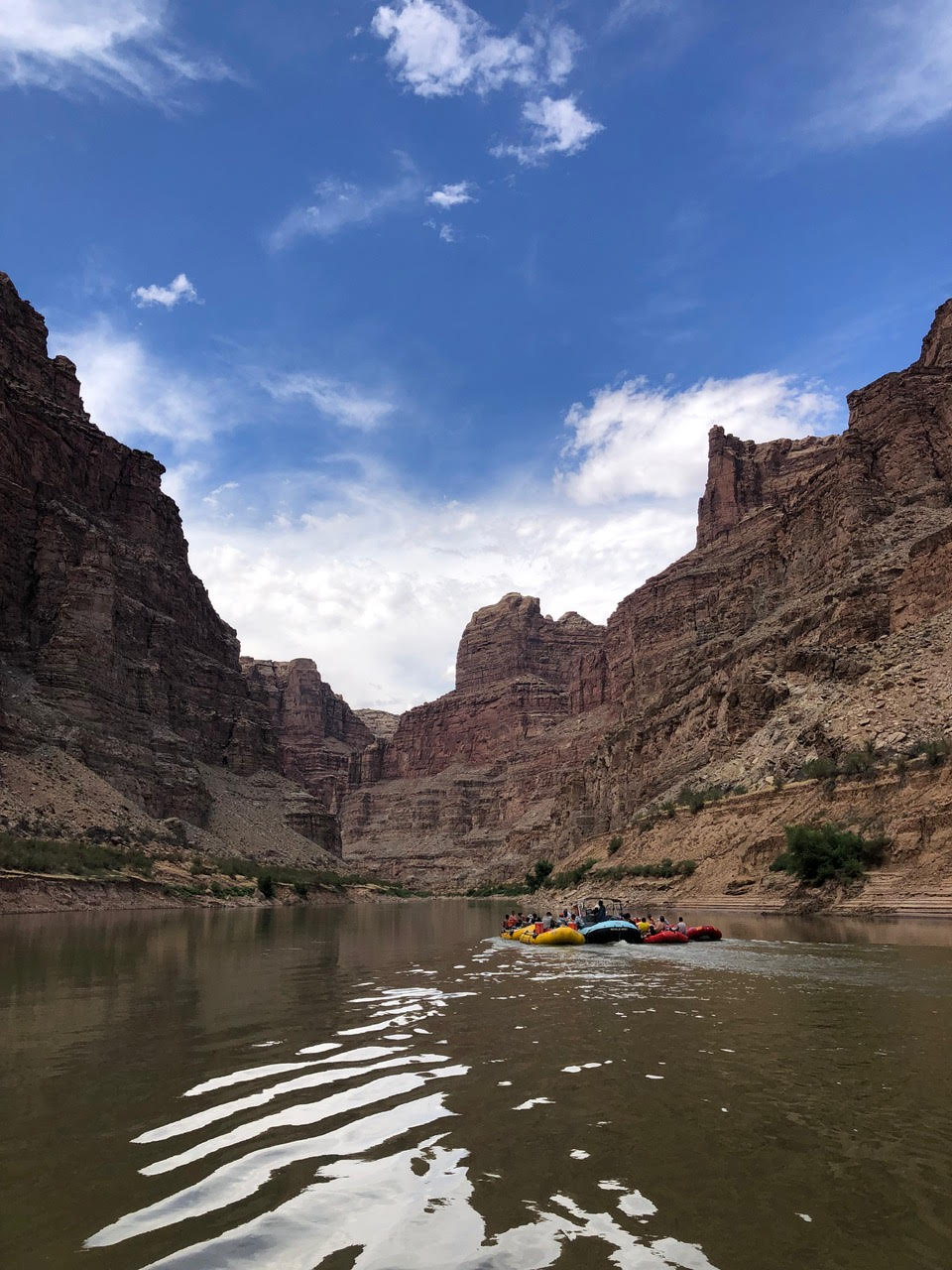
To love a river
I think the consequences of my years as a guide will reveal themselves to me for years to come. My dad, who was a guide over 20 years ago, talked to me this summer about a yearning in him always to return the river that I can relate to. It breaks my heart, but I think I am beginning to understand what he means.
And so even now, my love for that place continues to shape me. Moab and the river and all that it has come to symbolize for me is one of the pillars of who I have come to be as a person. It has shaped my morals, the way I love, who I love, why I love, what I fight for, how I face adversity, how I face uncertainty, how I trust myself, and how I know and trust my God. Abbey spoke fondly of the “strangeness and wonder of existence” being emphasized in the desert by the “comparative sparsity of the flora and fauna: life is not crowded upon life as in other places but scattered abroad in spareness and simplicity, with a generous gift of spaces for each herb and bush and tree… The extreme clarity of the desert light is equaled by the extreme individuation of desert life-forms” (26). And here’s the catch—“Love flowers best in openness and freedom.”
In such a massive way, that is what the river gave me. The freedom to choose, the freedom to accept my consequences, the openness to question and doubt and know and think and be, and in all that it gave me, I learned to love the river with everything that I am.
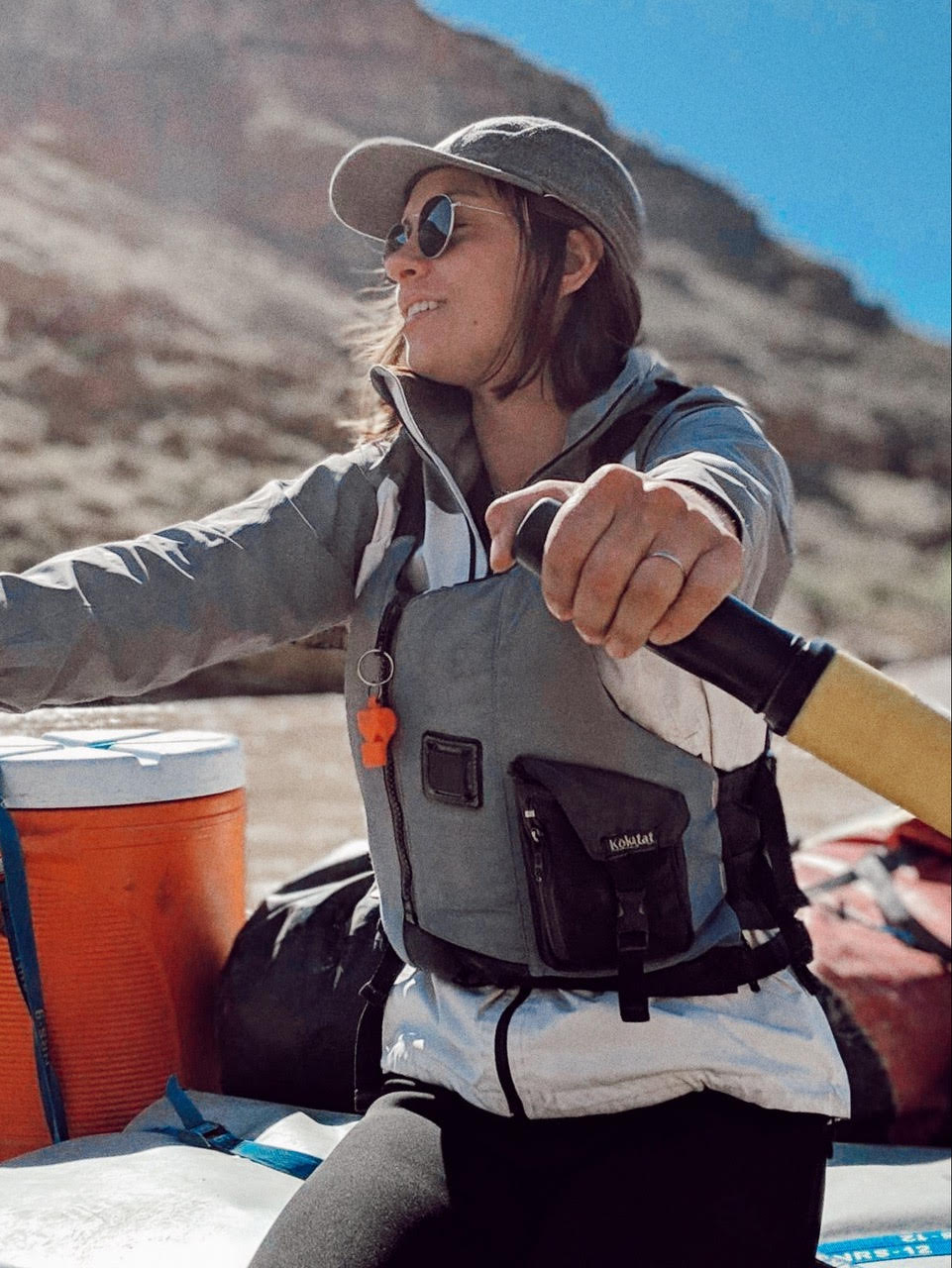

Alex is a student at BYU studying English. She grew up in Georgia, but the place that raised her was Moab, Utah. She spends her free time reading books, climbing rocks, rafting rivers, and getting lunch with friends.
